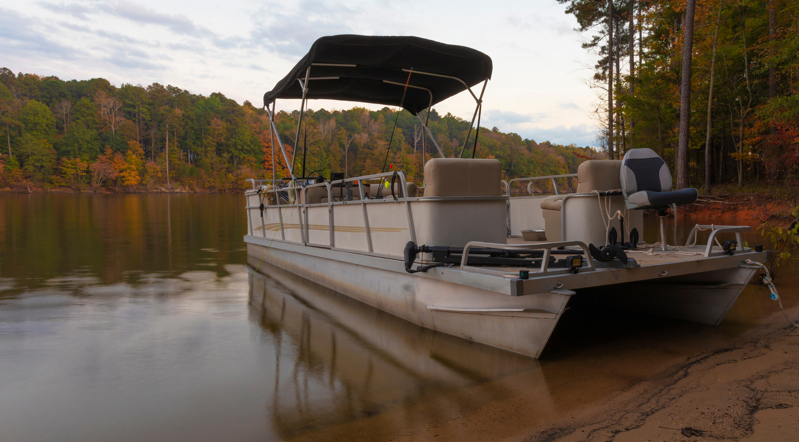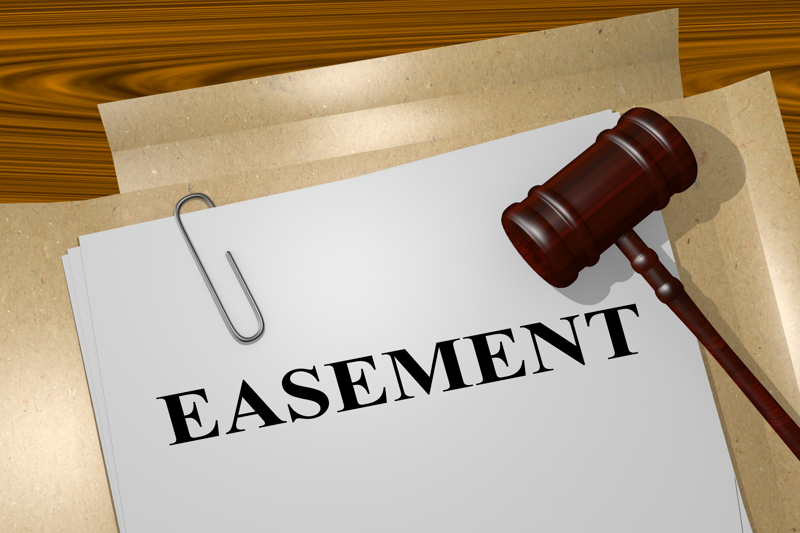
Horn V. Webb Decision: The Impact of Express Easements on Waterfront Property Rights in Virginia
Landmark Decision in Riparian Rights Law
Three years ago, I wrote in this blog about an important decision of the Fairfax County Circuit Court. There, in summer 2000, the Circuit Court ruled that the owner of a waterfront property on Lake Barcroft, in Falls Church, Virginia, could require a landlocked neighbor to remove a pontoon boat from the property notwithstanding an express easement granting the landlocked neighbor a 20-foot-wide corridor across the owner’s land that enabled the landlocked neighbor to access the lake. The Court held that the pontoon boat, docked on the owner’s land at a place beyond the easement, must be removed even though the pontoon boat was present at this location since 1966, far more than the 20 years needed to establish a prescriptive easement. The Circuit Court, in that prior, case reasoned that the claim of prescriptive easement failed because the boat was not present under conditions that were “adverse” or “hostile” to the waterfront property owner but rather it had been docked with the permission of the waterfront property owner.
This link takes you to our summer 2000 post describing that prior case.
In February of this year, the Virginia Supreme Court reached the opposite result. That is, the Virginia Supreme Court ruled that the use was not permissive, hence the boat owner was protected by a prescriptive easement which entitled him to permanently dock his vessel at the waterfront property owner’s property.
This Virginia Supreme Court decision is an important case for every owner of waterfront property who would like to know the legal ramifications of granting a neighbor’s request to conduct an activity that will affect the waterfront property owner’s use and enjoyment of his or her property, no matter whether the grant is made through express easement or by informal permission.
Background of Horn v. Webb
The Virginia Supreme Court’s recent decision is Horn v. Webb. There, plaintiff Kevin Horn traveled an unusual path to deliver the case up to the Virginia Supreme Court. To understand the plucky, even daring, nature of Mr. Horn’s gambit we must first review the case on which we blogged three years ago. That previous case was Rustgi v. Webb. The person named Webb in the previous case was James Webb, a best-selling author, a former Secretary of the Navy and a former U.S. Senator, the same Webb that brought suit against Mr. Horn. In the prior case, Rustgi owned the pontoon boat; it was docked on Webb’s property at a location beyond the easement. The Fairfax County Circuit Court ruled in the prior case that Rustgi must remove the pontoon boat from the Webb property. The basis of the Circuit Court’s ruling was that Fidel, a prior owner of the Webb property, had given permission to the person who previously owned the pontoon boat. The Circuit Court held that the permission given 57 years ago remained intact, thus defeating Rustgi’s claim to a prescriptive easement.
Instead of removing the pontoon boat, Rustgi sold the boat for $1 to Horn, a neighbor. Horn refused to remove the pontoon boat from the Webb property so Webb sued Horn in the same court, claiming the boat must be removed, relying on the same legal theories that proved successful against Rustgi. Horn defended, using the same arguments that the Court rejected when it heard the Rustgi v. Webb case. Not surprisingly, the Circuit Court ruled in same fashion as it had ruled in the prior case; it ordered Horn to remove the pontoon boat from the Webb property and to pay Webb $11,550 in compensatory damages. In a clear signal that it was not amused by Horn’s decision to re-litigate the Rustgi case, the Fairfax County Circuit Court ordered Horn to pay an additional $45,000 to Webb as punitive damages because, according to the Circuit Court, Horn’s replication of the failed Rustgi strategy was “inexcusable”. Surprisingly, Horn’s decision to press the appeal brought success where Rustgi had failed.
Shutterstock: Guy J. Sagi

Shutterstock: Guy J. Sabi
Key Issue: Durability of Permission Granted in 1966
Horn, as did Rustgi before him, claimed that the doctrine of prescriptive easement gave him a permanent right to dock the pontoon boat at the location where it was moored for the past 57 years, in an area beyond the 20-foot-wide easement corridor.
Many people are familiar with the idea that adverse possession can transfer ownership of property to a person who occupies the property of another for the time fixed by law, such person sometimes being referred to as a “squatter”. Prescriptive easement may be a less familiar concept, but it is like adverse possession in many respects, the key difference being that prescriptive easement asserts “use” of another’s property over a specified time whereas adverse possession claimants assert “possession” of another’s property over a specified time. The “use” or “possession” must, in both instances be “adverse” and “hostile” to the property owner. Webb, the property owner, could not deny that Horn, and the parties that owned the pontoon boat prior to Horn, made “use” of the docking facility for 57 years, well beyond the requisite time which, for prescriptive easement, under Virginia law, is 20 years. Webb’s entire case, then, depended on his ability to show that the “use” was permissive which, if true, would defeat Horn’s claim of prescriptive easement because a use authorized on permission received from Webb is not “adverse” nor “hostile” to Webb.
Webb’s evidence established that in 1966 Fidel (Webb’s predecessor in the chain of title) granted permission to a predecessor of Horn. The question then became: Did permission given by Fidel survive Fidel’s sale of the property in 1970, in the absence of the new owner having given permission afresh in his or her own right? Indeed, the Fidel property changed hands not only in 1970, but also in 1976, and in 2005, before Webb purchased the property in 2017. Webb presented evidence that the intermediate owners between Fidel and Webb in the chain of title conducted themselves in a manner suggesting that those intermediate owners acquiesced to the pontoon boat being docked outside the easement area but, importantly, the Court held that conduct suggesting acquiescence is insufficient to establish permission. The Virginia Supreme Court accordingly held that Horn was entitled to his prescriptive easement and the pontoon boat could remain docked at the Webb property.

Shutterstock: Hakafot
Lessons Learned for Waterfront Property Owners
We have represented waterfront property owners in litigation involving neighbors, with an express easement being the root cause fueling the conflict. Our experience suggests caution is warranted when a neighbor proposes that the waterfront property owner enter an express easement or other arrangement for the benefit of the neighbor, or for mutual benefit. Litigation is rarely a pleasant experience for parties. It is a distraction from one’s normal daily life, it is not usually completed quickly, it can be emotionally draining, and legal fees are costly. The unpleasant effects of these various factors are multiplied when the warring litigants live next door to one another. In the typical case, the conflict arises not between the original parties to the express easement but rather it emerges years later when a new owner, with a different outlook, takes possession of the property that is burdened or benefited by the easement. These lessons are on full display in the Virginia Supreme Court’s Horn v. Webb case.
Conclusion: Protecting Your Waterfront Property Rights
The attorneys on our Waterfront Property Law Team have strong connections, significant legal experience and go the extra mile for our clients to get the job done. A few years ago one of our attorneys kicked off his shoes and got in the water to fend off a criminal enforcement action. The attorney got soaked in the process, but he protected our client from facing criminal charges. Contact us to get the help you need from attorneys who go the extra mile to serve you.
